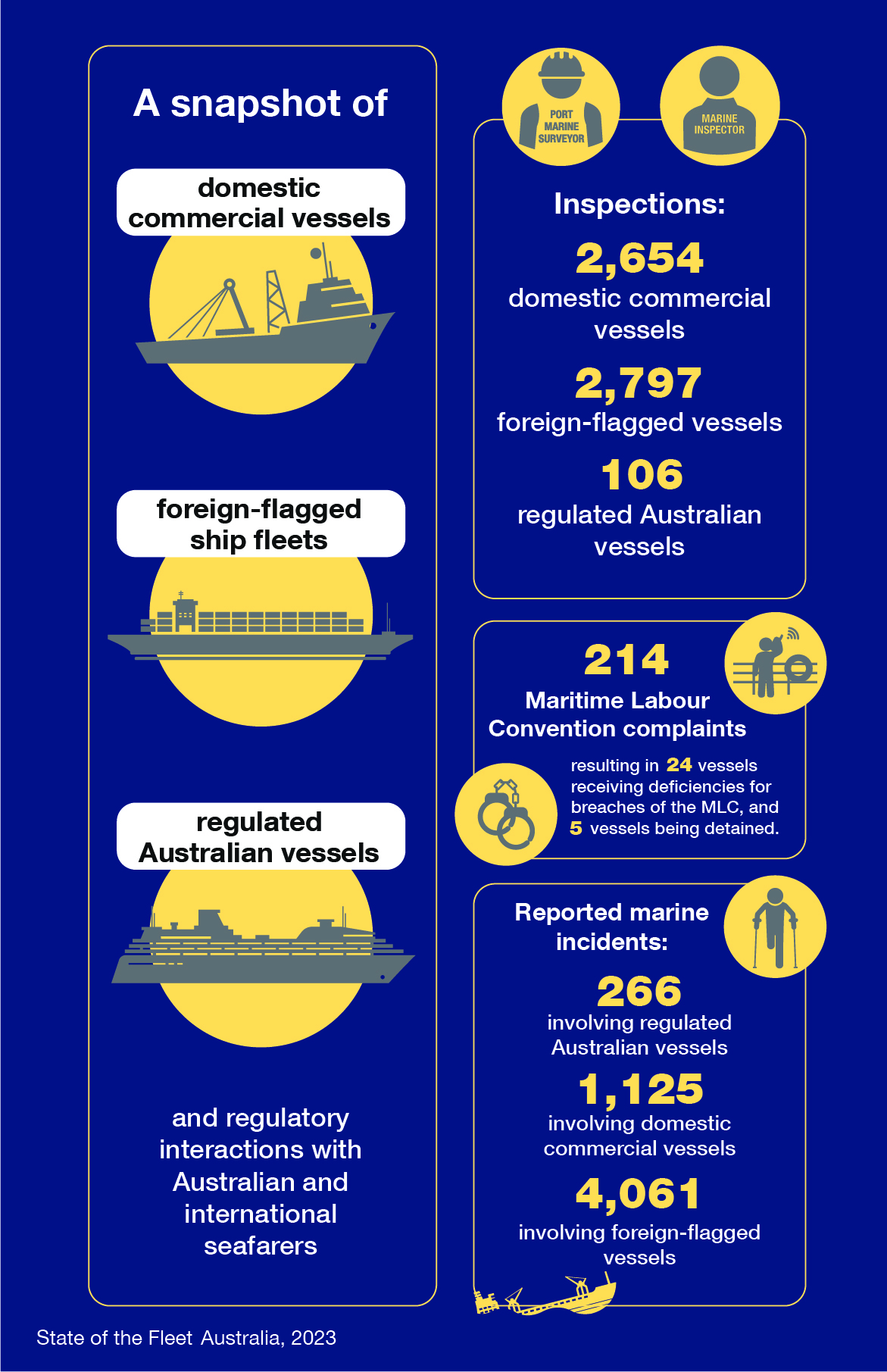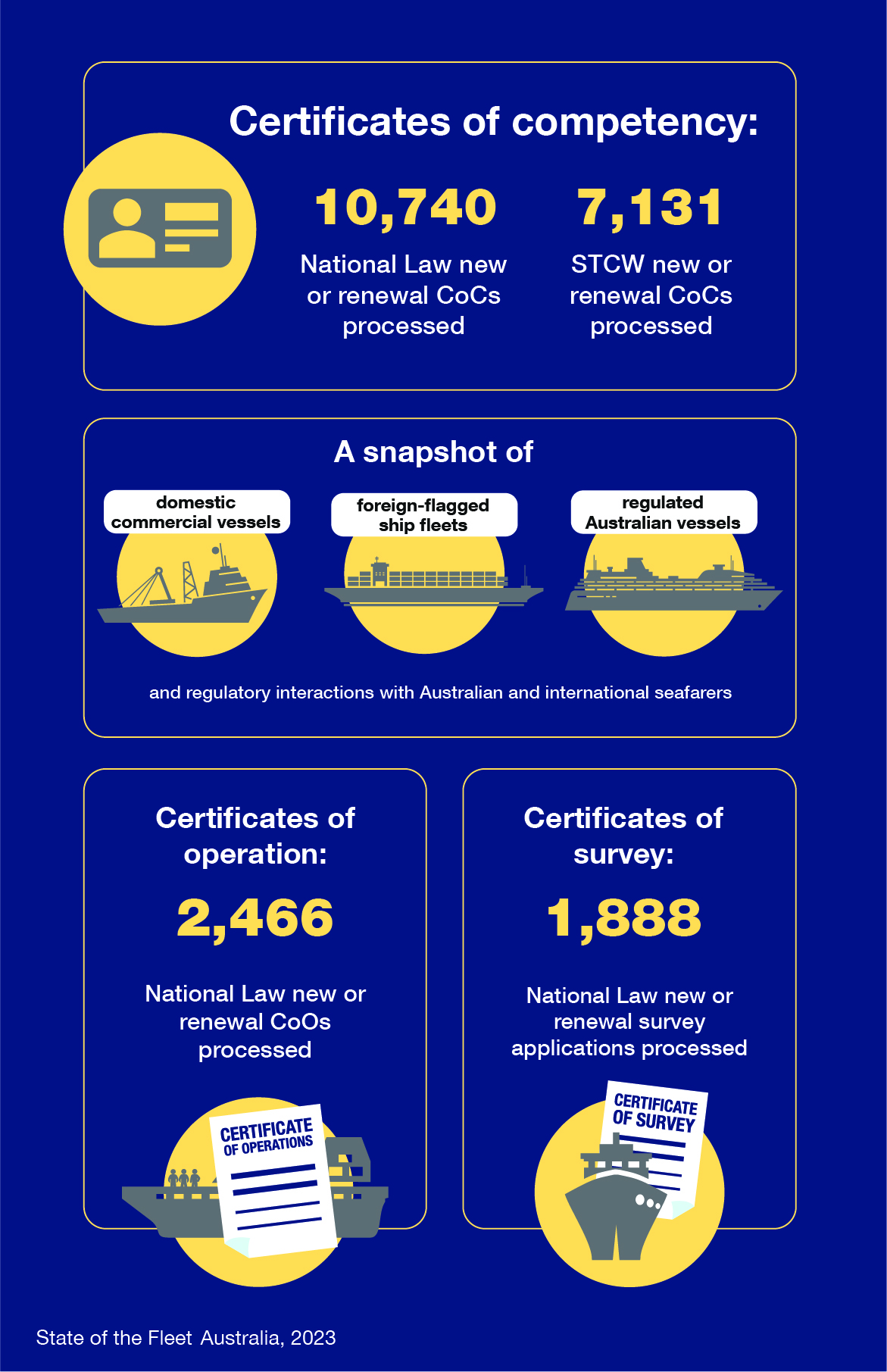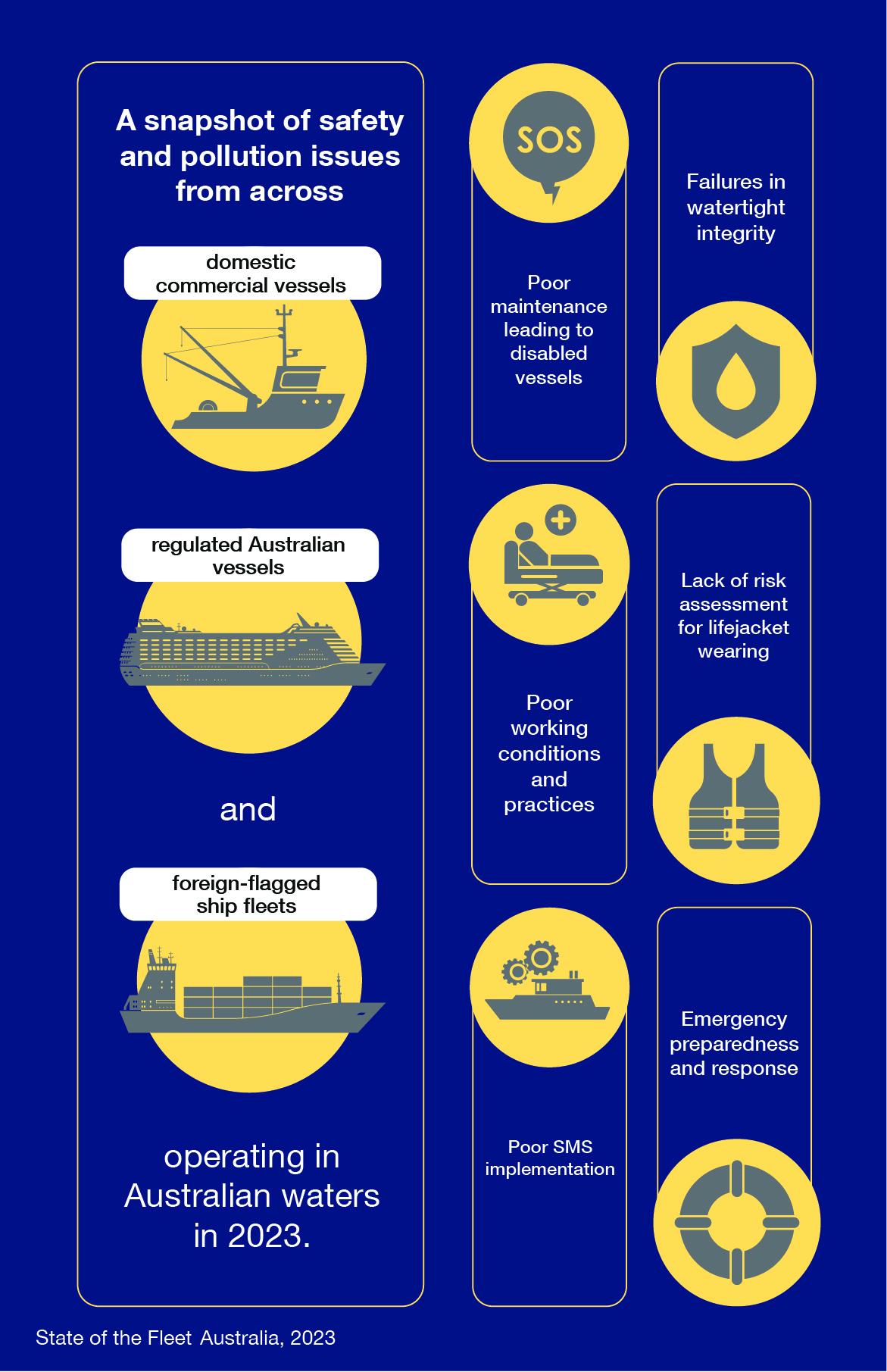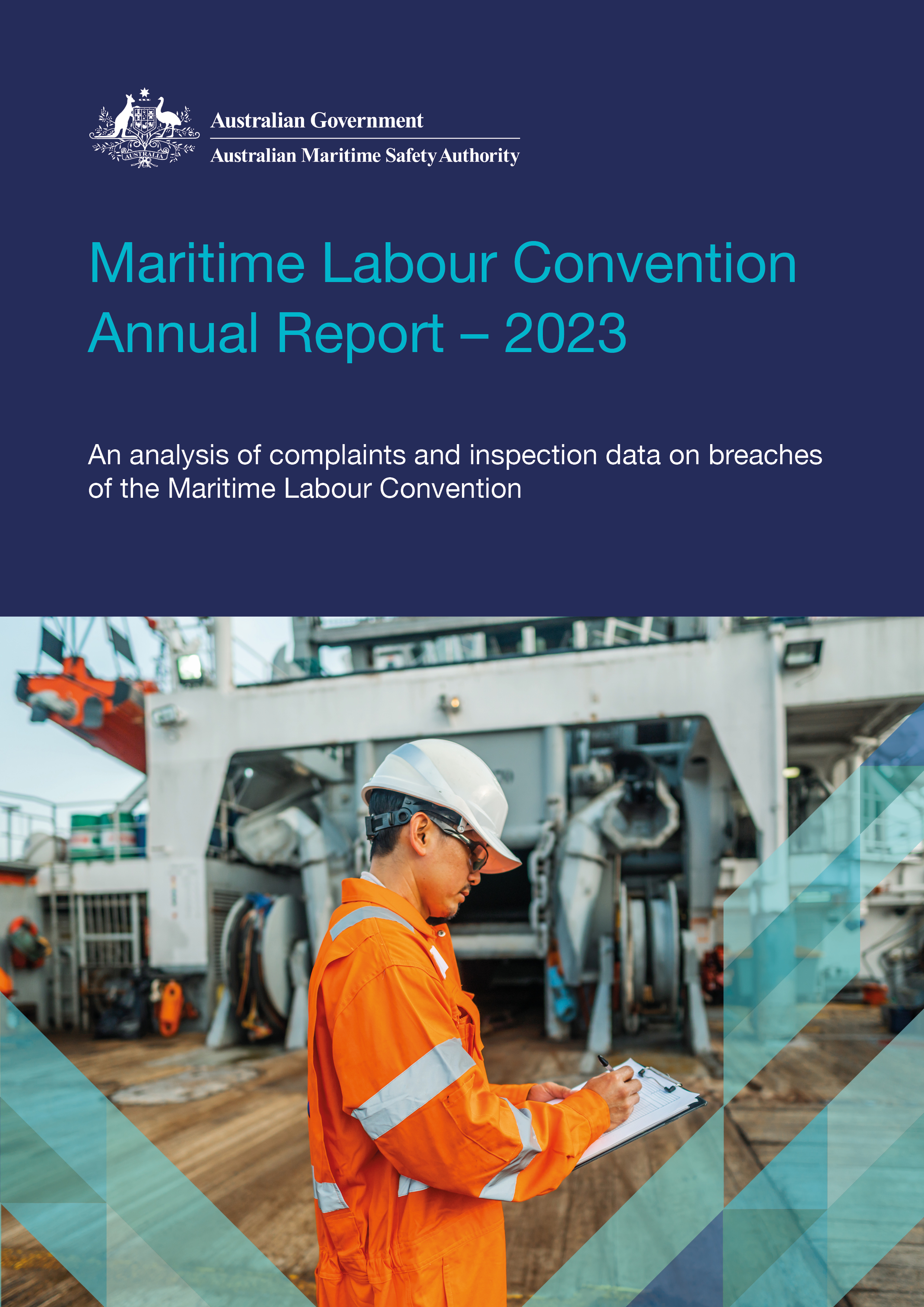We regulate the safety of domestic commercial, regulated Australian and foreign-flagged vessels in Australian waters.
Our maritime industries are incredibly diverse, from sole operator crabbers who work on 3-metre fishing vessels in remote areas of the Northern Territory, through to bulk carriers loading coal in Queensland and iron ore in Western Australia, busy passenger ferries in Sydney and Melbourne, and cruise liners carrying thousands of people across the Bass Strait to Tasmania.
Here is an overview of our regulatory interactions with the people and vessels that work in these diverse maritime industries, as well as some insights into recurring safety and pollution issues.
In 2023, we conducted 2,654 inspections on domestic commercial vessels (DCVs), 2,797 of foreign-flagged vessels (FFVs), and 106 of regulated Australian vessels (RAVs).
We received reports of 1,125 marine incidents involving DCVs, 4,061 involving FFVs and 266 involving RAVs.
We also investigated 100% of the 214 Maritime Labor Convention (MLC) complaints we received which resulted in 24 vessels receiving deficiencies, and 5 vessels being detained for breaches of the MLC. The MLC upholds the rights of seafarers to decent working and living conditions onboard.
We take our role seriously when it comes to enforcing these standards on vessels operating in Australian waters.


We processed thousands of new and renewal applications for seafarer certificates of competency (CoCs):
- 10,740 domestic seafarers under the National Law
- 7,131 for seafarers qualified internationally under the Standards of Training, Certification, and Watchkeeping (STCW).
We also processed:
- 2,466 applications for certificates of operation
- 1,888 applications for certificates of survey
Our inspection, incident and investigation data revealed six priority risk areas:
- poor maintenance leading to disabled vessels
- failures in watertight integrity
- emergency preparedness and response
- lack of risk assessment for situations when lifejacket wearing is appropriate
- poor working conditions and practices resulting in fatalities and serious injuries
- poor safety management system implementation.
These insights help us refine our focus areas for future compliance activities. We will launch our next National Compliance Plan in July 2024. Subscribe to our newsletters and follow our social media channels to stay up to date.

- AMSA: State of the Fleet 2023 video transcript
Introducing the Australian Maritime Safety Authority’s State of the Fleet Australia, 2023.
State of the Fleet provides an overview of AMSA’s regulatory interactions with the people and vessels that work in Australian waters, as well as some insights into recurring safety and pollution issues from across the domestic commercial vessel, regulated Australian, and foreign-flagged vessel fleets.
In 2023, AMSA and its compliance partners processed 10,740 new or renewal Certificates of Competency under the National Law for Domestic Commercial Vessels, and 7,131 under the International Convention for Standards of Training, Certification and Watchkeeping for Seafarers.
2,654 initial inspections were conducted DCVs, 2,797 on foreign-flagged vessels and 106 on regulated Australian vessels.
1,125 marine incidents involving DCVs, 4,061 involving foreign-flagged vessels and 266 involving regulated Australian vessels were reported to AMSA.
214 complaints about alleged breaches of the Maritime Labour Convention were received, with 100% follow-up resulting in 24 vessels receiving deficiencies for breaches of the MLC, and 5vessels being detained.
1,888 new or renewal survey applications and 2,466 new or renewal Certificates of Operation applications were processed by AMSA for DCVs.
Issues identified across these vessel fleets in 2023 related to:
- disabled vessels
- watertight integrity
- fatalities and serious injuries related to working conditions and practices
- risk assessments related to lifejacket-wearing
- safety management system requirements
- emergency response procedures

